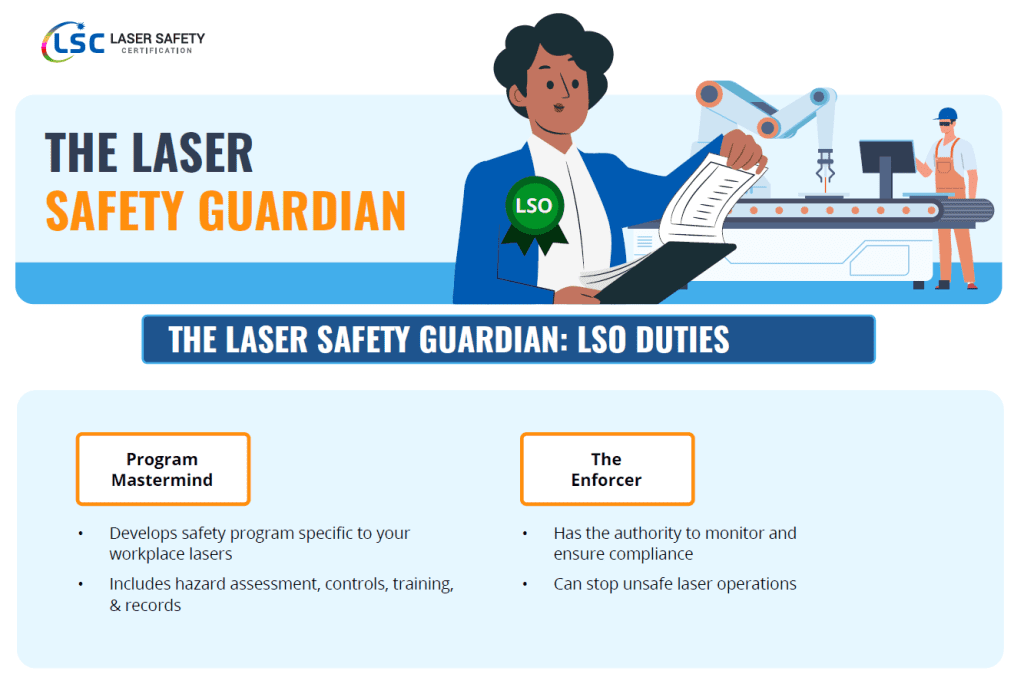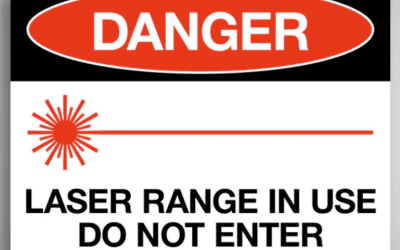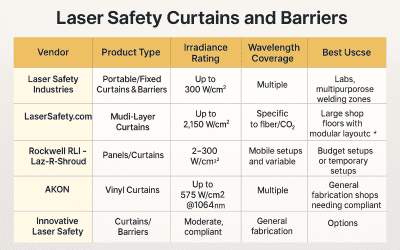What Is A Laser Safety Officer?
A Laser Safety Officer (LSO) is crucial in any organization that utilizes lasers. They are responsible for ensuring the safe operation of lasers and protecting employees, patients, and the public from potential hazards. LSOs establish and maintain a comprehensive laser safety program, including training, risk assessment, and implementing control measures. Whether working in industrial settings or healthcare facilities, obtaining proper certification, such as the industrial laser safety officer certification, is essential for LSOs to effectively carry out their duties and promote a culture of laser safety within their organization.
Understanding the Role of a Laser Safety Officer
The role of a Laser Safety Officer (LSO) is essential in ensuring the safe use of lasers within an organization. LSOs are responsible for developing, implementing, and maintaining a comprehensive laser safety program that protects employees, patients, and the public from potential laser hazards. Some critical aspects of an LSO’s role include:
- Conducting risk assessments and hazard evaluations
- Developing and enforcing laser safety policies and procedures
- Providing training and education on laser safety
- Investigating laser-related accidents and incidents
- Maintaining accurate records and documentation
What is the Purpose of Laser Safety?
Laser safety is crucial for preventing accidents, injuries, and potential health risks associated with using lasers. The primary objectives of laser safety are:
- Ensuring the safe operation of lasers in various settings, such as industrial, medical, and research environments
- Protecting employees, patients, and the public from laser-related hazards, including eye and skin injuries, as well as fire risks
- Maintaining compliance with relevant regulations and standards, such as ANSI Z136 and OSHA guidelines
- Promoting a culture of safety and awareness within the organization
By prioritizing laser safety, organizations can minimize the occurrence of laser-related incidents and create a safer working environment for all individuals involved in laser operations.
What are the Duties of an LSO?
An LSO’s primary duties involve establishing and maintaining a robust laser safety program within their organization. Some of the critical responsibilities of an LSO include:
- Developing and implementing comprehensive laser safety protocols that address the specific needs and risks associated with the organization’s laser operations
- Conducting thorough evaluations of laser hazards to identify potential risks and implement appropriate control measures
- Providing training and education to employees on proper laser safety practices, ensuring that all personnel are well-informed about potential hazards and control measures
- Monitoring and enforcing laser safety controls, regularly evaluating the effectiveness of these measures, and making necessary adjustments.
- Investigating laser-related accidents and incidents, determining root causes, and implementing corrective actions to prevent future occurrences
LSOs should consider obtaining an industrial laser safety officer certification to perform their duties effectively. This certification demonstrates a comprehensive understanding of laser safety principles and best practices, enhancing the LSO’s credibility and expertise within their organization.
- Staying current with the latest developments in laser safety standards, regulations, and best practices
- Collaborating with other departments and stakeholders to ensure the successful implementation of laser safety measures
- Serving as the primary point of contact for laser safety-related questions, concerns, and incidents within the organization
Who Should be the Laser Safety Officer?
The role of an LSO can be filled by professionals from diverse backgrounds, such as:
- Radiation safety officers
- Industrial hygienists
- Safety engineers
- Laser specialists
- Other individuals with relevant experience and expertise in laser safety
The most suitable candidate for the LSO position will depend on various factors, including:
- The organization’s specific requirements and the complexity of its laser operations
- The candidate’s experience, knowledge, and qualifications in laser safety
- The ability to effectively communicate and collaborate with various stakeholders, including management, employees, and external agencies
- The capacity to balance technical expertise with strong leadership and problem-solving skills
Depending on the organization’s needs and the scale of its laser operations, the LSO role may be a part-time or full-time position. Sometimes, the LSO responsibilities may be combined with other safety-related duties. In contrast, in others, a dedicated full-time LSO may be necessary to ensure the organization’s highest level of laser safety.
The Role of a Medical Laser Safety Officer
Medical Laser Safety Officers (MLSOs) play a vital role in ensuring the safe use of lasers in healthcare settings. Their primary responsibility is to oversee the implementation and maintenance of laser safety programs specifically tailored to medical facilities’ unique requirements.
Responsibilities in Healthcare Settings
In healthcare environments, MLSOs are tasked with ensuring the safety of patients, medical staff, and other personnel using lasers in various medical applications. Some of their key responsibilities include:
- Conducting risk assessments and hazard evaluations specific to medical laser procedures
- Developing and implementing laser safety policies and protocols for healthcare settings
- Providing training and education to medical staff on the proper use of lasers and safety measures
- Collaborating with healthcare professionals to ensure compliance with laser safety standards and regulations
- Investigating and reporting laser-related incidents or accidents in medical facilities
MLSOs should obtain a healthcare laser safety officer certification to carry out their duties effectively. This certification demonstrates a comprehensive understanding of laser safety principles and best practices specific to the healthcare industry.
Certification and Training Requirements
Obtaining a Laser Safety Officer certification is crucial for professionals responsible for laser safety in any setting, including healthcare. LSO certification signifies that an individual has the necessary knowledge, skills, and expertise to develop, implement, and maintain an effective laser safety program.
To become certified, LSOs must typically complete a comprehensive training course that covers various aspects of laser safety, such as:
- Fundamentals of laser physics and biology
- Laser hazard classification and risk assessment
- Control measures and personal protective equipment
- Regulatory requirements and standards (e.g., ANSI Z136, OSHA)
- Emergency response and incident reporting
We offer LSO specific certification training for anyone in your organization who can be trusted with such responsibilities.
In addition to completing a training course, aspiring LSOs must often meet specific experience requirements and pass a certification exam to demonstrate their proficiency in laser safety principles and practices. Certification typically involves ongoing education and professional development to stay current with the latest advancements and best practices in laser safety.
Obtaining LSO certification enhances an individual’s credibility and expertise in the field. It demonstrates their commitment to ensuring their organization’s highest level of laser safety.
What Does a Laser Range Safety Officer Do?
A Laser Range Safety Officer (LRSO) oversees the safe use of lasers within a specific range or facility. Their primary role is to ensure all laser operations within their designated area comply with established safety standards and regulations.
Managing Laser Range Safety Programs
One of the critical responsibilities of an LRSO is establishing and managing a comprehensive laser range safety program. This involves:
- Developing and implementing site-specific laser safety policies and procedures
- Conducting risk assessments and hazard evaluations for laser operations within the range
- Providing training and education to personnel engaged in laser activities
- Ensuring that all laser devices and equipment are adequately maintained and serviced
- Coordinating with other departments and agencies to ensure compliance with laser safety regulations
LRSOs must also maintain accurate records and documentation of laser operations, incidents, and safety measures implemented within their range.
Hierarchy of Laser Safety
Within the hierarchy of laser safety, there are different levels of laser safety officers, each with specific roles and responsibilities. These levels may include:
- Laser Safety Officer (LSO): Responsible for the overall laser safety program within an organization
- Deputy Laser Safety Officer (DLSO): Supports the LSO in implementing and maintaining the laser safety program during off-hours
- Laser Safety Specialist (LSS): Provides technical expertise and guidance on laser safety matters
- Laser Safety Coordinator (LSC): Assists in the day-to-day management of laser safety activities
LRSOs typically fall under the LSO or ALSO level, depending on the size and complexity of the laser range they oversee. To effectively carry out their duties, LRSOs may benefit from using a healthcare laser safety kit containing essential tools and resources for managing laser safety in medical settings.
Types of Laser Safety
Laser safety can be broadly categorized into two main types: industrial laser safety and medical laser safety. While both types share the common goal of preventing laser-related injuries and accidents, the specific safety measures and protocols required for each setting are distinct.
Industrial laser safety protects workers and equipment in manufacturing, research, and development environments where high-powered lasers are used for cutting, welding, drilling, and other applications. Essential safety measures in industrial settings include:
- Engineering controls (e.g., enclosures, interlocks, beam stops)
- Administrative controls (e.g., standard operating procedures, access restrictions)
- Personal protective equipment (e.g., laser safety eyewear, protective clothing)
In contrast, medical laser safety emphasizes the protection of patients, healthcare workers, and support staff during the use of lasers in diagnostic, therapeutic, and cosmetic procedures. Medical laser safety measures may include:
- Controlled access to laser treatment rooms
- Use of non-reflective instruments and surfaces
- Eye protection for patients and staff
- Specialized training for healthcare professionals using lasers
LRSOs must be well-versed in the specific safety requirements and best practices relevant to the type of laser operations conducted within their range, whether industrial or medical.
FAQs
Q: What is the role of a laser safety officer?
A: The primary role of a Laser Safety Officer (LSO) is to ensure the safe use of lasers within an organization. This includes developing and implementing a comprehensive laser safety program, training employees with laser products, establishing and enforcing laser safety controls, and conducting regular hazard evaluations. LSOs are crucial in maintaining a safe working environment and preventing laser-related accidents or injuries. Laser Safety Certification offers training and certification programs to help LSOs acquire the knowledge and skills to carry out their responsibilities effectively.
Q: What does a laser range safety officer do?
A: A Laser Range Safety Officer (LRSO) oversees the safe operation of lasers within a specific range or facility. Their duties include establishing and managing a laser range safety program, conducting risk assessments, providing training for personnel involved in laser activities, and ensuring compliance with relevant safety regulations and guidelines. LRSOs work closely with other departments and agencies to maintain a safe environment for laser use within their designated area. Laser Safety Certification provides resources and training to support LRSOs in managing laser safety on ranges and installations.
Q: Do we need a laser safety officer?
A: Organizations that use Class 3B and Class 4 lasers must appoint at least one Laser Safety Officer who has completed an appropriate LSO training course. The number of LSOs needed may vary depending on the organization’s size, the complexity of laser operations, and the number of laser systems used. Laser Safety Certification offers comprehensive LSO training courses and certification programs to help organizations meet this requirement and ensure the highest level of laser safety in their facilities.
Q: Who should be the laser safety officer?
A: The Laser Safety Officer should be an individual with a strong background in safety, such as a radiation safety officer, industrial hygienist, safety engineer, or laser specialist. Sometimes, the LSO role may be assigned to an experienced laser operator or user. The LSO position may be part-time or full-time, depending on the workload and the organization’s laser safety needs. Laser Safety Certification provides training and certification programs suitable for professionals from various backgrounds interested in becoming LSOs and enhancing their expertise in laser safety.
Elevate Your Career and Ensure Workplace Safety: Become a Certified Laser Safety Officer
Take the next step in your professional journey and become a certified Laser Safety Officer with Laser Safety Certification. Our comprehensive training programs provide you with the knowledge and skills to effectively manage your organization’s laser safety. By obtaining certification; you demonstrate your commitment to ensuring a safe working environment for your colleagues and promoting best practices in laser use.
Explore our specialized certification programs tailored to your industry:
- Healthcare Laser Safety Officer Certification: Designed for professionals responsible for laser safety in medical settings, this program covers healthcare laser applications’ unique challenges and requirements.
- Industrial Laser Safety Officer Certification: Ideal for individuals overseeing laser safety in manufacturing, research, and development environments, this program focuses on the specific safety measures and protocols required for industrial laser operations.
Investing in your education and obtaining LSO certification enhances your credibility and expertise and positions you as a valuable asset to your organization. With the increasing use of lasers across various industries, the demand for qualified and certified Laser Safety Officers continues to grow.
Take advantage of this opportunity to advance your career and positively impact workplace safety. Visit Laser Safety Certification today to learn more about our certification programs and take the first step towards becoming a certified Laser Safety Officer.




